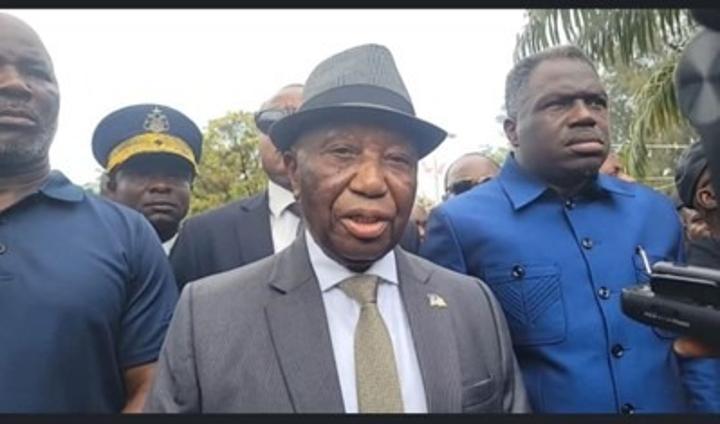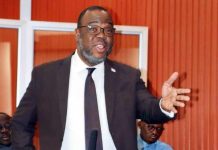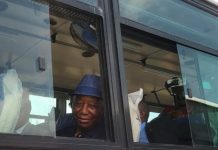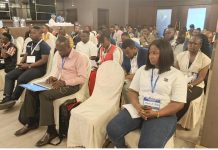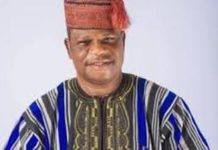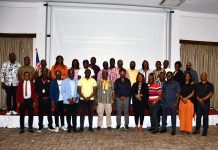Africa-Press – Liberia. As streetlights continue to flood Monrovia’s once-dark corners, a new kind of complaint has emerged, not from residents, but from some of the city’s street dwellers (disadvantaged youths), known locally as “zogos.”
President Joseph Nyuma Boakai, speaking on November 9, 2025, during a worship service at the New Covenant Outreach Ministries on 25th Street, joked that the country’s improved power supply has even made life difficult for those who used to take advantage of the cover of darkness.
“The only people complaining are the ‘zogos,’ because there’s now too much light, they can’t ‘jerk phone’ anymore,” the President said, drawing laughter and applause from the congregation.
The comment came as President Boakai praised Mohammed M. Sheriff, Managing Director of the Liberia Electricity Corporation (LEC), for his outstanding leadership in stabilizing power and improving electricity access nationwide.
“The LEC belongs to the people of Liberia, and it is only right that Liberians have a say in how it is managed,” the President explained.
For years, Monrovia’s streets have been ruled by darkness and by those who found refuge in it. In slum communities like Red Light, Duala, and 12th Street, dimly lit alleys were where zogos survived, slept, or stole to get by. But now, under the LEC’s nationwide lighting and expansion projects, those familiar shadows are fading.
“I can’t even stand behind the market at night anymore,” says Momo, a young man who has been living on the streets for nearly a decade. “Everywhere bright now, the police can see you quick.”
The street-lighting initiative, launched by LEC in September 2025, has installed hundreds of solar- and grid-powered lights along major roads, including the ELWA and RIA Highway, turning previously unsafe areas into bright corridors of movement and business.
For ordinary Liberians, the lights have meant security and opportunity. For many zogos, they have meant exposure and change.
During his address, President Boakai lauded the progress achieved under Mohammed Sheriff’s leadership, saying Liberia’s electricity sector is seeing one of its best periods in decades.
“People say when you make changes at the LEC, our partners may have a problem with it. But I told them, this is our country, not the partners’. We will decide who goes where,” he stated.
We thank God for Mohammed, the LEC boss. Since he took over,” Boakai added, he has been doing an excellent job.
The President’s remarks followed a series of reforms that have redefined Liberia’s power landscape.
The Liberia Electricity Corporation (LEC), responsible for electricity generation, transmission, and distribution, has made historic strides.
Under the Liberia Energy Efficiency and Access Project (LEEAP), 39,792 new customers were connected to the grid, including hospitals, schools, and businesses.
A 45 km double-circuit transmission line now links Paynesville to Roberts International Airport (RIA). Also, two new substations, Schefflin (66/22 kV) and RIA (66/33 kV), were completed.
About 980 km of new distribution lines were built across Paynesville, RIA, Owens Grove, and Pleebo, Fish Town corridors. A new Unification Town substation now powers over 14,000 homes and businesses.
At the same time, LEC launched a 12-week street-lighting project along key highways and public spaces, helping reduce crime and accidents after dark.
In addition, the corporation signed a 23.75 MWp solar-plus-battery deal with Scatec and a 40 MW public-private partnership thermal project for Bushrod Island, all aimed at strengthening the grid and reducing reliance on imported electricity.
While many Liberians celebrate the progress, some communities are still adjusting. Street dwellers who once used the cover of darkness for safety or survival now find themselves under the glare of new LED lights.
For observers, the President’s lighthearted remark about “zogos” exposes a deeper issue: how Liberia’s development efforts must also address the country’s marginalized populations.
The country’s reliance on imported power from Côte d’Ivoire, reduced by 85% in early 2025, continues to expose Liberia’s vulnerability. LEC’s tariff review proposal for 2026–2028 has also sparked concern over affordability for low-income consumers.
Still, Boakai’s remarks underline a renewed sense of national ownership and optimism.
“This is our country, not the partners’. We will decide who goes where,” he insisted.
For the city’s forgotten population —the zogos —the light has forced them out of the shadows and into the light.
For More News And Analysis About Liberia Follow Africa-Press

